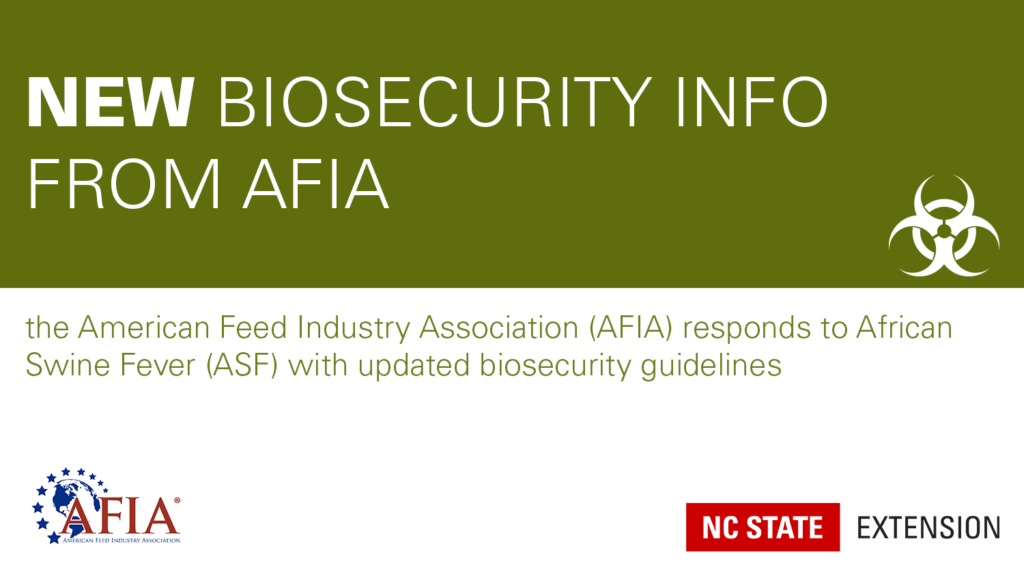Impact of African Swine Fever on Feed Manufacturing Facilities
go.ncsu.edu/readext?609263
en Español / em Português
El inglés es el idioma de control de esta página. En la medida en que haya algún conflicto entre la traducción al inglés y la traducción, el inglés prevalece.
Al hacer clic en el enlace de traducción se activa un servicio de traducción gratuito para convertir la página al español. Al igual que con cualquier traducción por Internet, la conversión no es sensible al contexto y puede que no traduzca el texto en su significado original. NC State Extension no garantiza la exactitud del texto traducido. Por favor, tenga en cuenta que algunas aplicaciones y/o servicios pueden no funcionar como se espera cuando se traducen.
Português
Inglês é o idioma de controle desta página. Na medida que haja algum conflito entre o texto original em Inglês e a tradução, o Inglês prevalece.
Ao clicar no link de tradução, um serviço gratuito de tradução será ativado para converter a página para o Português. Como em qualquer tradução pela internet, a conversão não é sensivel ao contexto e pode não ocorrer a tradução para o significado orginal. O serviço de Extensão da Carolina do Norte (NC State Extension) não garante a exatidão do texto traduzido. Por favor, observe que algumas funções ou serviços podem não funcionar como esperado após a tradução.
English
English is the controlling language of this page. To the extent there is any conflict between the English text and the translation, English controls.
Clicking on the translation link activates a free translation service to convert the page to Spanish. As with any Internet translation, the conversion is not context-sensitive and may not translate the text to its original meaning. NC State Extension does not guarantee the accuracy of the translated text. Please note that some applications and/or services may not function as expected when translated.
Collapse ▲African Swine Fever (ASF) has been a major topic of conversation in the last few months, as outbreaks have occurred in China and several other countries around the world. With North Carolina being one of the top pork-producing states in the country, it is important to maintain good biosecurity practices to ensure a safe feed and food supply.
In response to these recent outbreaks, the American Feed Industry Association (AFIA) has released new biosecurity guidelines specifically for feed manufacturers specifically for feed manufacturers. These guidelines encourage facilities to adopt practices that prevent contamination from being spread via feed products and promote Food Safety Modernization Act (FSMA) compliance. The procedures outlined address best practices for supplier approval programs, receiving ingredients, management of employees, visitors, and drivers, and manufacturing processes to reduce biological hazards.
Additionally, the Swine Health Information Center, National Pork Board, National Pork Producers Council, and American Association of Swine Veterinarians have released an updated fact sheet on viral transmission in feedstuffs for feed holding times, another way to mitigate viral transmission of ASF.
Common between these documents is the importance of having an approval program for suppliers and ensuring good communication between facilities and their suppliers.
For more information about ASF, visit the Pork Checkoff. If you have questions about the impacts of ASF on feed manufacturers, contact Marissa Herchler. For inquiries related to livestock, contact your local livestock Extension agent.



